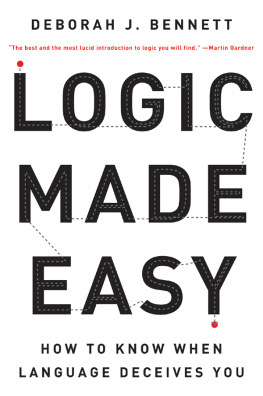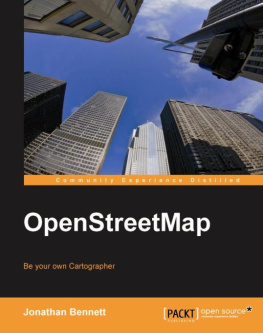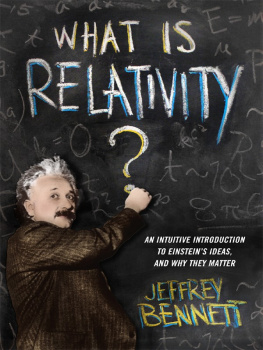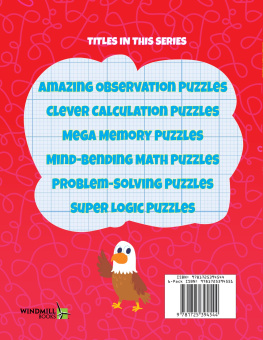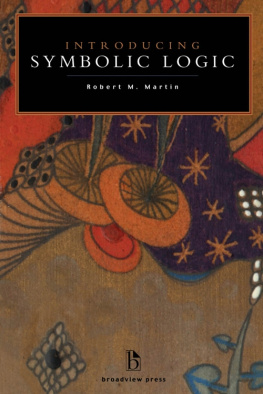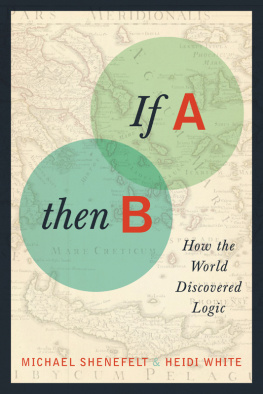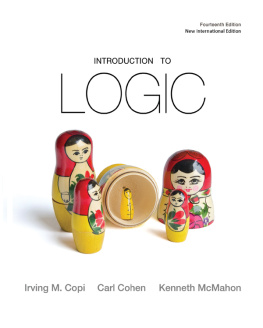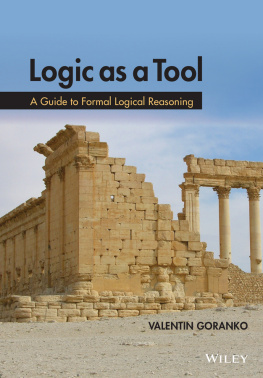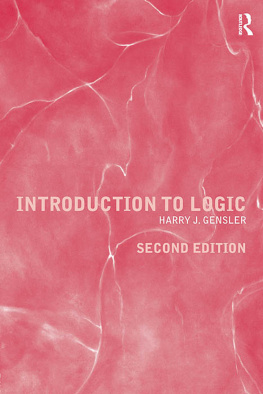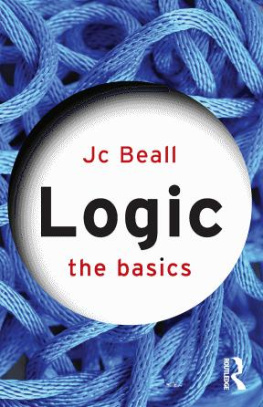
LOGIC
MADE
EASY
How to Know When Language Deceives You
DEBORAH J. BENNETT

C ONTENTS
Crime is common. Logic is rare.
S HERLOCK H OLMES
in The Adventure of the Copper Beeches
Logic Made Easy is a book for anyone who believes that logic is rare. It is a book for those who think they are logical and wonder why others arent. It is a book for anyone who is curious about why logical thinking doesnt come naturally. It is a book for anyone who wants to be more logical. There are many fine books on the rules of logic and the history of logic, but here you will read the story of the barriers we face in trying to communicate logically with one another.
It may surprise you to learn that logical reasoning is difficult. How can this be? Arent we all logical by virtue of being human? Humans are, after all, reasoning animals, perhaps the only animals capable of reason. From the time we are young children, we ask Why?, and if the answer doesnt make sense we are rarely satisfied. What does make sense mean anyway? Isnt makes sense another way of saying is logical?
Children hold great stock in rules being applied fairly and rules that make sense. Adults, as well, hold each other to the standards of consistency required by logic. This book is for anyone who thinks being logical is important. It is also for anyone who needs to be convinced that logic is important.
To be considered illogical or inconsistent in our positions or behaviors is insulting to us. Most of us think of ourselves as being logical. Yet the evidence indicates something very different. It turns out that we are often not very logical. Believing ourselves to be logical is common, but logic itself is rare.
This book is unlike other books on logic. Here you will learn why logical reasoning isnt so easy after all. If you think you are fairly logical, try some of the logic puzzles that others find tricky. Even if you dont fall into the trap of faulty reasoning yourself, this book will help you understand the ways in which others encounter trouble.
If you are afraid that you are not as logical as youd like to be, this book will help you see why that is. Hopefully, after reading this book you will be more logical, more aware of your language. There is an excellent chance that your thinking will be clearer and your ability to make your ideas clearer will be vastly improved. Perhaps most important, you will improve your capability to evaluate the thinking and arguments of othersa tool that is invaluable in almost any walk of life.
We hear logical arguments every day, when colleagues or friends try to justify their thoughts or behaviors. On television, we listen to talking heads and government policy-makers argue to promote their positions. Virtually anyone who is listening to another argue a point must be able to assess what assumptions are made, follow the logic of the argument, and judge whether the argument is valid and its calculation warranted.
Assimilating information and making inferences is a basic component of the human thought process. We routinely make logical inferences in the course of ordinary conversation, reading, and listening. The concept that certain statements necessarily do or do not follow from certain other statements is at the core of our reasoning abilities. Yet, the rules of language and logic oftentimes seem at odds with our intuition.
Many of the mistakes we make are caused by the ways we use language. Certain nuances of language and semantics get in the way of correct thinking. This book is not an attempt to delve deeply into the study of semantics or cognitive psychology. There are other comprehensive scholarly works in those fields. Logic Made Easy is a down-to-earth story of logic and language and how and why we make mistakes in logic.
In Chapter 2, you will discover that philosophers borrowed from ideas of mathematical proof as they became concerned about mistakes in logic in their never-ending search for truth. In Chapters 3, 4, and 5, as we begin to explore the language and vocabulary of logical statementssimple vocabulary like all , not , and some you will find out (amazingly enough) that knowledge, familiarity, and truth can interfere with logic. But how can it be easier to be logical about material you know nothing about?
Interwoven throughout the chapters of this book, we will learn what history has to offer by way of explanation of our difficulties in reasoning logically. Although rules for evaluating valid arguments have been around for over two thousand years, the common logical fallacies identified way back then remain all too common to this day. Seemingly simple statements continue to trip most people up.
While filling out important legal papers and income tax forms, individuals are required to comprehend and adhere to formally written exacting languageand to digest and understand the fine print, at least a little bit. Getting ready to face your income tax forms, you encounter the statement All those who reside in New Jersey must fill out Form 203. You do not live in New Jersey. Do you have to fill out Form 203? Many individuals who consider themselves logical might answer no to this question. The correct answer is We dont knowmaybe, maybe not. There is not enough information. If the statement had read Only those who reside in New Jersey must fill out Form 203 and you arent a New Jersey resident, then you would be correct in answering no.
Suppose the instructions had read Only those who reside in New Jersey should fill out Form 203 and you are from New Jersey. Do you have to fill out Form 203? Again, the correct answer is Not enough information. Maybe, maybe not. While only New Jersey residents need to fill out the form, it is not necessarily true that all New Jersey-ites must complete it.
Our interpretations of language are often inconsistent. The traffic information sign on the expressway reads Delays until exit 26. My husband seems to speed up, saying that he cant wait to see if they are lying. When I inquire, he says that there should be no delays after exit 26. In other words, he interprets the sign to say Delays until exit 26 and no delays thereafter. On another day, traffic is better. This time the sign reads Traffic moving well to exit 26. When I ask him what he thinks will happen after exit 26, he says that there may be traffic or there may not. He believes the sign information is only current up to exit 26. Why does he interpret the language on the sign as a promise about what will happen beyond exit 26 on the one hand, and no promise at all on the other?
Cognitive psychologists and teachers of logic have often observed that mistakes in inference and reasoning are not only extremely common but also nearly always of a particular kind. Most of us make mistakes in reasoning; we make similar mistakes; and we make them over and over again.
Beginning in the 1960s and continuing to this day, there began an explosion of research by cognitive psychologists trying to pin down exactly why these mistakes in reasoning occur so often. Experts in this area have their own journals and their own professional societies. Some of the work in this field is revealing and bears directly on when and why we make certain errors in logic.
Various logical tasks have been devised by psychologists trying to understand the reasoning process and the source of our errors in reasoning. Researchers Peter C. Wason and Philip Johnson-Laird claim that one particular experiment has an almost hypnotic effect on some people who try it, adding that this experiment tempts the majority of subjects into an interesting and deceptively fallacious inference. The subject is shown four colored symbols: a blue diamond, a yellow diamond, a blue circle, and a yellow circle. (See Figure 1.) In one version of the problem, the experimenter gives the following instructions:
Next page
